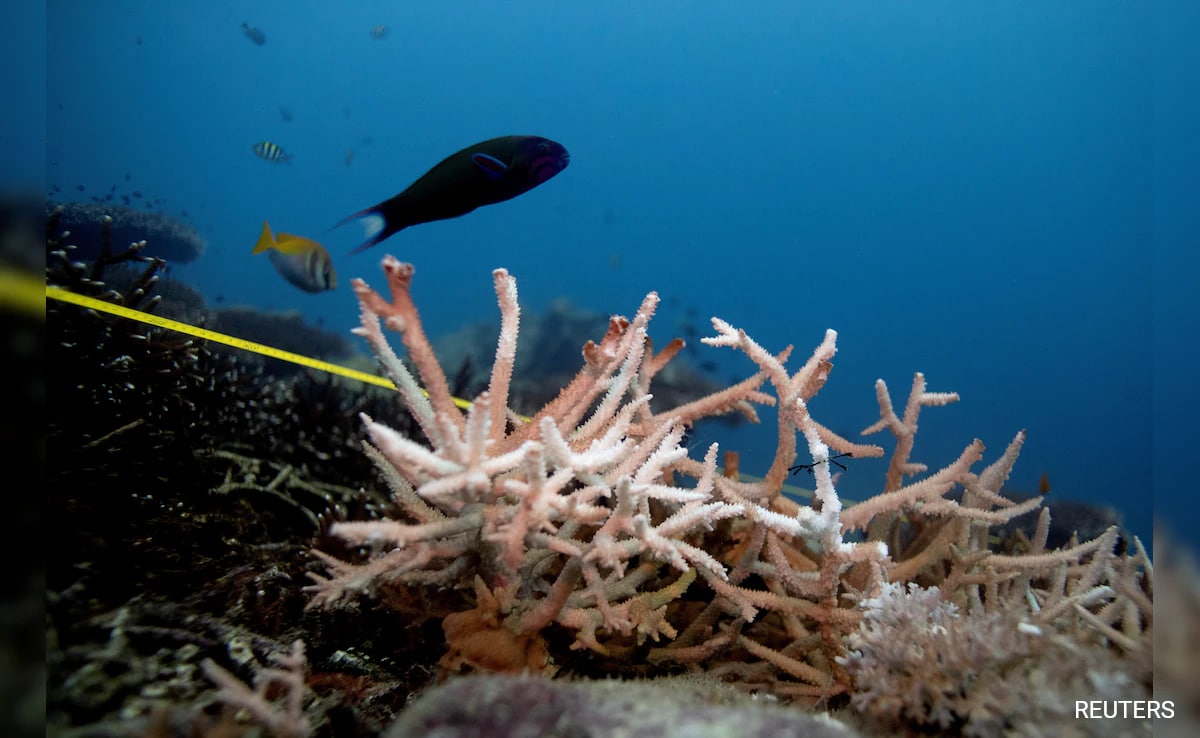
Global average sea surface temperature records exclude polar oceans.
London:
Ocean temperatures hit a record high in February, with the global average sea surface temperature at 21.06 degrees Celsius (69.91 degrees Fahrenheit), the European Union’s Copernicus Climate Change Service (C3S) said on Thursday.
February’s average sea surface temperature surpassed the previous record of 20.98 degrees Celsius (69.77 degrees Fahrenheit) set in August 2023, which dates back to 1979.
The ocean record in question was released during the hottest February on record, marking the ninth consecutive month with such a milestone.
Marine scientists warned this week that a fourth global mass coral bleaching event in the southern hemisphere, driven by warming waters, could be the worst in Earth’s history.
Corals bleach under heat stress, expelling the colorful beneficial algae that live in their tissues, leaving behind a pale skeleton. This left them vulnerable to starvation and disease, and many died. This could lead to the collapse of fragile coral reef ecosystems, leaving coastlines unprotected from erosion, storms and fisheries.
Surface water temperatures in the eastern Pacific are warmer than normal El Niño weather patterns, coupled with human-caused climate change, fueling the extra heat.
“Even more surprising is that areas far from the center of El Niño, such as the tropical Atlantic and Indian oceans, are seeing record sea surface temperatures,” said climate scientist Richard Allen of the University of Reading.
He said this showed the strong impact of rising greenhouse gas emissions in the atmosphere.
While the global average sea surface temperature record does not include the polar oceans, conditions there are also dire.
Antarctic sea ice extent reached its annual minimum extent in February, 28% below average and the third lowest extent on record.
El Niño in the equatorial Pacific is currently weakening, but temperatures over the ocean remain at unusually high levels, C3S said.
(Except for the headline, this story has not been edited by NDTV staff and is published from a syndicated feed.)
Follow us on Google news ,Twitter , and Join Whatsapp Group of thelocalreport.in













